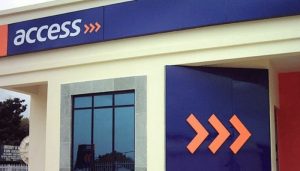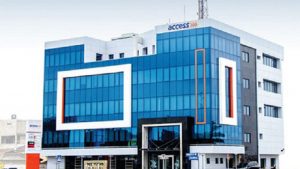This year marks 22 years since two young Nigerian bankers – Aigboje Aig-Imoukhuede and Herbert Wigwe – bought a small, nondescript bank and turned it into one of the biggest financial institutions on the continent with footprint also established in Europe and Asia. It was on March 22, 2002, that the two walked into Plot 1669 Oyin Jolayemi Street, Victoria Island, Lagos, which was then the corporate headquarters of the bank to assume duty and full control as the managing director and deputy managing director. The acquisition process had taken about two years and entailed rigorous negotiations, and countless hours of working through documentation. It was one of the most audacious takeovers in the history of the nation’s financial industry. Indeed, the phenomenal growth of the Access Group has become an inspiring success story.
Shortly after the takeover, Access Bank embarked on a five-year transformation agenda, and two years into the plan, the CBN announced the N25 billion capitalisation deadline set for end of December 2005. The institution’s management went to work, raising the required capital and developing the impetus to seek opportunities for possible mergers and acquisitions. Recognising the opportunity that existed to build scale, the institution mobilised its workforce and quickly raised N15 billion via a public offer, acquired two other small banks, Capital Bank Ltd. and Marina International Bank Ltd., and convinced FMO, the Netherland development finance company, to become an institutional investor through the conversion of a $15 million term loan it had earlier given to the bank. With the N25 billion capitalisation met and surpassed, the race to the top became a fixed goal to the new owners. They then embarked on an aggressive drive to raise money both from local and foreign capital markets.
Between 2006 and 2007, Access Bank raised a local bond issue of N11.9 billion and in 2007 it raised N136 billion in public offerings, including a highly successful and oversubscribed GDR (global depository receipt) and established Access Bank UK. In June 2008, the beginning of the second five-year transformation plan, every action was geared at taking the institution to the top. Between 2009 and 2011, the bank passed CBN’s special audit on governance, liquidity and capital adequacy conducted under the tough-talking Sanusi Lamido Sanusi. Three major achievements were also recorded. The bank was awarded IFC Sustainable Bank of the Year; it acquired Intercontinental Bank and was ranked the fourth largest bank in Nigeria as a result of the acquisition.
With these successes, a huge surge of confidence and can-do spirit have by now swept through the entire workforce. Staffers went through a rigorous process of reorientation and change of the bank’s vision and mission; and with business combination with Intercontinental completed in 2012, management staff assumed bigger roles and responsibilities. Access Bank became one of the favourite places to work for bankers from other institutions. The bank was enjoying the pulsating work pace and dynamic work environment, enthralled in seeing the dream of being in the top five becoming a reality year after year.
That same 2012 and spanning 2013, the bank raised $350 million Eurobond in the international market and divested from non-banking subsidiaries. It was also designated as a significantly important financial institution by the CBN, one of the very few in the industry. This means a recognition of its huge footprint in the economy, the integrity and respect of its leaders and the fact that the bank could not be allowed to fail under any circumstance. It is for this reason that the CBN recently intervened in the board and management composition of one bank. Another huge milestone came in 2014 when Access Bank issued a $400 million subordinated note (tier 2 bond) and transited into a large, diversified banking institution.
In January 2014, Herbert Wigwe assumed duty as the group managing director and chief executive officer, after the retirement of Aigboje Aig-Imoukhuede. With enormous goodwill and attractive brand equity, the bank continued to outpace its contemporaries. In 2017, it further shored up its capital by raising N42 billion through rights issue and issued another $300 million subordinated note.
But it was its merger with Diamond Bank in 2018 that catapulted Access Bank to the number one slot in at least some parameters: assets and retail business with 646 branches. It also recorded the biggest channel touchpoints: 38 million cards; 3,000 ATMs and 34,000 POS terminals. In 2019, Access bank issued the first green bond in Nigeria. In 2020, it expanded its African business into Kenya and Mozambique and became the first Nigerian bank to set up shop in South Africa. A few weeks ago, the South African ambassador to Nigeria was on TV commending the bank for establishing a branch in his country.
In 2022, Access Bank marked the final year of its previous five-year strategy, which focused on building Africa’s gateway to the world, through the deployment of robust risk management practices, and a flawless execution of its strategic priorities. By all key metrics, the strategy was successfully executed as the bank grew its scale to span over 6,000 dedicated professional staff serving over 52 million customers across 17 markets worldwide.
In the second half of 2022, Access Bank was restructured into a Holding Company – birthing Access Holdings – to realise the potential of the synergies from the various businesses, while expanding product offering to customers in payments, insurance, consumer finance and pensions.
True to plan, Access Holdings, in 2023, launched its operations in Paris, setting the tone for a robust long-term goal across the Northern Hemisphere. The Group has also strategically ventured into new territories, bringing its expertise, resources, and innovative solutions to areas with immense growth potential. These strategic moves exemplify the company’s vision to be a pan-African force, contributing to economic development across borders. Through its subsidiaries, the institution has played a pivotal role in sectors ranging from finance and banking to agriculture, technology, and healthcare, bringing diverse opportunities to the communities it serves.
In countries where Access Holdings has established a presence, the institution has become a driving force for job creation and entrepreneurship. Access Holdings has sown the seeds of sustainable economic development by supporting Small and Medium Scale Enterprises (SMEs), investing in local businesses, and providing financial solutions tailored to the needs of each market.
The company’s ability to adapt its business model to the unique dynamics of each African market sets it apart, as it recognises that Africa is not a monolithic entity, but a collection of diverse economies with distinct challenges and opportunities. Through its expansion strategy, the institution tailors its approach to address the specific needs of each region, contributing to a more inclusive and holistic development across the continent.
Commencing in the second half of 2024, the Group’s Africa and international expansion strategy will enter the consolidation and efficiency phase, aligning with the institution’s five-year plan to accelerate the attainment of its 2027 strategic objectives.












